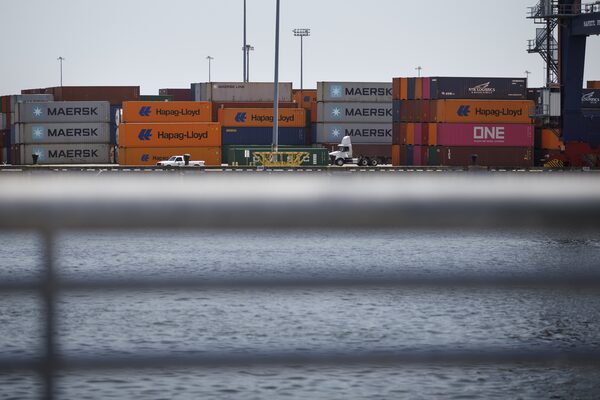
Right now, there’s not much the Canadian government can do in the U.S.-China trade war other than watch and fret.Drew Angerer/Getty Images
The U.S.-China trade war is hitting other countries hard enough that most of the globe will be hoping for a quick deal to end it. But even if there is such a deal, the superpower trade tensions will continue to cause trouble for countries like Canada.
This is a big, tough problem for Canada’s leaders and it should get more attention in the months before the federal election: How will Canada handle the new economic Cold War?
For those with money in the stock markets, the U.S.-China trade war probably didn’t feel too cool on Monday. But this is a Cold War. As Toronto trade lawyer Larry Herman observes, “tariffs will be the weaponry.”
In this Cold War, the United States hasn’t had much time for allies. Neither superpower is particularly constrained by the rules of global trade, the ones that are supposed to protect smaller economies like Canada’s. Chances are, if the giants make a deal, it will undermine those rules.
Right now, there’s not much the Canadian government can do other than watch and fret. In the short term, a U.S.-China trade war might boost Canadian exports, as the Chinese shift to other suppliers. But we know that depends on the goodwill of China’s leaders. Beijing has already blocked canola imports in transparent retaliation for the arrest of Huawei executive Meng Wanzhou. And there is a danger Chinese firms that can’t sell their goods in the United States will dump cut-rate products into Canada.
Still, Prime Minister Justin Trudeau’s government, like just about every other government in the world, will be hoping there’s a deal out of fear that the U.S.-China tariff war could tip the global economy into recession.
But it’s not likely that such a deal would put trade between the world’s two largest economies on a stable footing. One thing the United States wants is an enforcement provision that would see the United States unilaterally slap on tariffs if it finds China is breaching the agreement, Mr. Herman said, which builds in continuing tension: “That is the harbinger of a new kind of Cold War.”
The United States and China don’t seem to be aiming at anything like a classic free-trade deal to lower tariff rates across the board. There has been talk it would include Chinese commitments to buy U.S. products. And that would displace exports from Canada and other countries.
That sort of thing violates World Trade Organization rules, but increasingly, it appears the United States and China don’t feel bound by them. The rules are eroding. The United States has already gummed up the works for WTO complaints by not making appointments to the organization’s appellate body.
The U.S. isn’t trying to lead the world in forcing China to play by the global trading rules. It’s just trying to get a better deal for itself. U.S. President Donald Trump didn’t go looking for allies in putting global pressure on China. He used the same high-pressure tariff game with Canada, the European Union, Japan and others.
Now, the United States applies 10-per-cent tariffs to Canadian steel and aluminum, citing national-security reasons, while China finds food-safety issues with Canadian canola in thinly veiled retaliation for the arrest of a Huawei executive. Mr. Trudeau spoke to Mr. Trump last Friday about the two Canadians detained in China in the Huawei dispute, but we can’t really expect he’d put disputes about canola or soybeans at the centre of his negotiations. The Chinese aren’t even returning Canada’s calls.
The Huawei dispute might be temporary, but not the spot Canada is in. China’s increasing assertiveness won’t be put back in a box. Mr. Trump’s desire to confront China, though not his methods, are backed by popular bipartisan consensus.
What will Canada’s leaders do? Mr. Trudeau’s Liberals still seem to think the problems with China will pass. Conservative Leader Andrew Scheer has just outlined a policy of pulling back from China and redoubling ties with the United States, because Mr. Trump’s time will pass. The NDP isn’t really on the case. The thing is, the politicians don’t just need a China policy, they need a policy on the hard new two-superpower world.
There are some things happening. Trade Minister Jim Carr has pushed meetings with “like-minded” countries – sans Mr. Trump’s United States – to discuss WTO reform. That initiative is not exactly moving at light speed. And the new, economic Cold War is already here.
 Campbell Clark
Campbell Clark